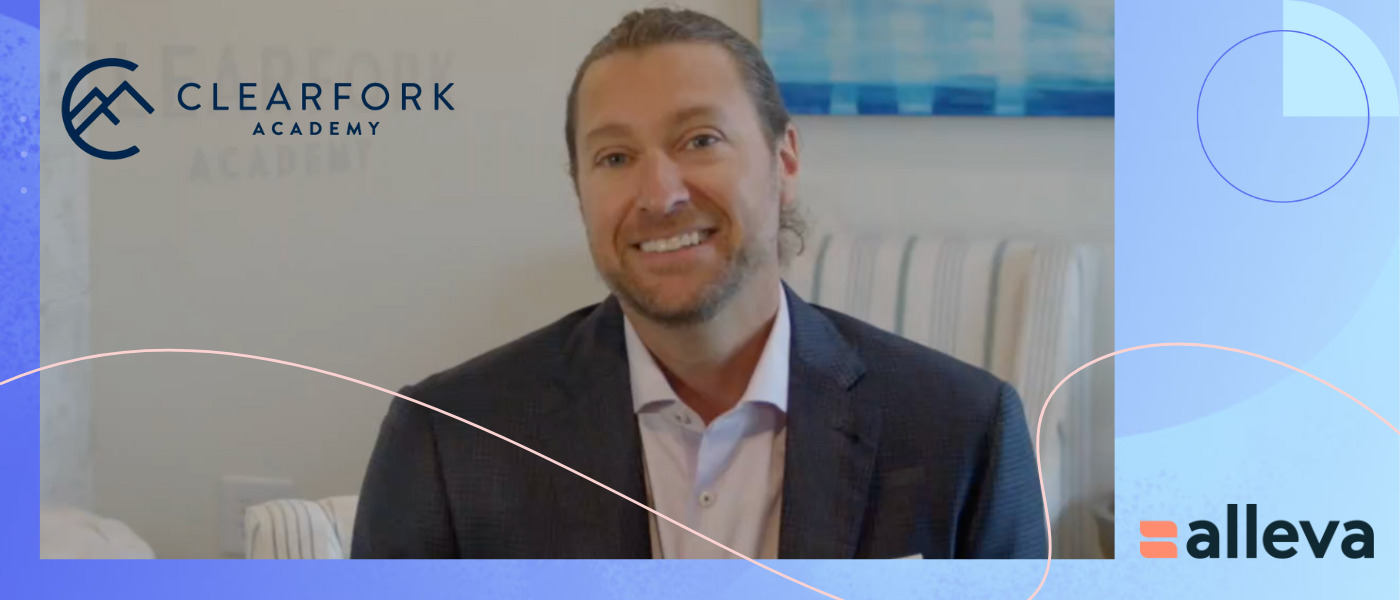The holiday season, known for its mirth and festivities, can often be stressful, leading to an increase in mental health challenges. Nearly 38% of people experience elevated stress levels during this period, contributing to physical illness, depression, anxiety, among others.
Remember that being there for someone does not mean having all the answers or fixing their problems, but rather showing compassion and support during their difficult times. Your kindness and empathy can go a long way in making a significant difference in their life and fostering a stronger bond between you both.
Historically, mental health and addiction treatment has been viewed as something completely different from standard health care. When someone has physical pain, we encourage them to see a doctor, to get medication and the treatment they need so that they can begin to heal. However, we often don’t know how to react when someone discloses emotional pain or addictive behavior.
There seems to be a disconnect in our understanding of the source of mental illness and physical illness. The brain is a complex and powerful organ but it often goes unexamined when trying to help someone who expresses feelings of depression, anxiety, and other ailments that are neurologically based.
In truth, mental illness and physical illness are just illnesses. They both affect us in similar ways and have been found to have effective treatments. Recent developments in technology and science have allowed researchers to better understand the biochemistry and inner workings of the brain and have even allowed them to map out certain processes in the brain.
These advances allow treatment for mental illness and addiction to be on par with traditional medical practices. By merging the two, the cultural view shifts, and mental health is perceived as essential to physical health. There’s no “one size fits all” treatment. Treatment options can include:
- Psychotherapy.
- Medication.
- Hospitalization.
- Support Group.
- Complementary & Alternative Medicine.
- Self Help Plan.
- Peer Support.
Dr. John V. Campo, chair of the Department of Psychiatry and Behavioral Health at Ohio State University explains “Psychiatric drugs haven’t improved for decades. So researchers are scouring the brain for leads. Proven regimens for treating common mental disorders and addictions are aiding the ‘cure’ rate and boosting public acceptance that such care works."
"Modern practices have the potential to improve public health and, perhaps equally important, engage families more actively in the care of individuals suffering from mental disorders and addictions."
Dr. John V. Campo
As research and development expand, and cultural attitudes evolve, more effective treatment options will be available for those in need. Trying to tell the difference between what expected behaviors are and what might be the signs of a mental health condition isn't always easy, but identifying a problem early can help lead to the best outcome.
Clearfork Academy is a Christ-centered residential treatment program for youth between the ages of 13 and 18 years old who struggle with substance abuse or addiction and the accompanying mental health and behavioral issues. They began using Alleva EMR when they first opened their two facilities in Texas but, after a while, parted ways. Then they "came back home" to Alleva. Listen to Austin Davis talk about the growth he's seen in Alleva over the years and how using the platform has helped their company succeed.
Alleva's Electronic Medical Records software solution offers the latest technology to therapists, improves the quality of their work, and relieves stress. Our intuitive, user-friendly platform eases the workflow for those providing care, so they have more time to do what they do best--serving their clients and saving lives.
Alleva's Insights feature helped Clearfork Academy to make better business decisions as their company grew. With advanced, real-time data, our clients are able to track their health center’s progress and efficiency. Customized charts make reporting a breeze. We help behavioral health clinics to meet their strategic business goals.
Let us walk you through it with a quick, hassle-free demo.

No more headaches. No more hassles.
Alleva Insights is easy and automated.
Say hello to solutions. helloalleva.com

Often when we think of Post-Traumatic Stress Disorder, the first image that comes to mind is a veteran haunted by nightmares of painful memories that he or she experienced in their service on the battlefield. This image is not mistaken: many veterans suffer from the effects of PTSD after their return to normal life.
However, PTSD is not a veteran-exclusive ailment. It is a psychiatric disorder that can occur after any traumatic experience. War is obviously filled with a lot of trauma; hence many who experienced the horrors of war will experience the effects of PTSD. However, it can also follow other painful experiences like natural disasters, serious accidents, sexual or physical assault, severe illness, or even witnessing another person experience these traumatic situations.
Everybody will experience something painful in their life, however, the majority of people will recover and be able to move on within a few weeks or months following the episode. Unfortunately, many will develop PTSD and will subsequently be harrowed by the memory of this painful experience.
Just like any other disease, physical or mental in nature, the effects of PTSD are very real and painful. Whether experienced because of a traumatic experience in war, or in civilian life, its effects truly hinder the individual’s ability to function. However, just like any other disease, there are professionals who know of remedies and cures to tame and eventually conquer its effects.
If you're a clinician looking to help people with this affliction, our mental health EMR can help. You can see the benefits and features of our software here. Or fill out the form below to schedule a demo.
[wpforms id="79"]
Our one-of-a-kind EMR software is taking off and we couldn’t be more excited to share the news. Our super-cool first press release was published earlier this week. “We knew we could make a difference in the realm of addiction recovery simply by improving communication between therapists, clients and families,” said co-founder Matt Stevens when interviewed for the press release.
Our HIPAA-compliant secure video conferencing, treatment plans, client app, and other unique features make our EMR the best on the market.
We want to thank our team members in our San Clemente and Provo offices for their hard work, creativity, and stunning good looks. We also want to thank our beta customers: Acqua Recovery, Miramar Recovery Center and Solara Mental Health for jumping on board and letting us be part of their teams.
We’re excited to see what’s next!
June is Post-traumatic stress disorder awareness month. PTSD is a disorder that is commonly associated with war veterans. But, as seen in the infographic below, it can also occur in people who have experienced the sudden death of a loved one, a car accident, or a range of other traumatic events.
PTSD and substance use disorders can often occur together. Similar events that trigger post-traumatic stress may also drive individuals to cope using chemical substances. One study found a 41% prevalence of lifetime post-traumatic stress disorder among individuals who used heroin. The same study found that individuals with PTSD were more likely to experiment and develop dependencies on a wider range of substances. They also had poorer physical and mental health, but were more likely to be in treatment. This means that treatment centers have a much higher than average proportion of individuals with PTSD, which speaks to the importance of various types of therapy.
Many informational resources are available online:
National Institute of Mental Health
The healthcare debate has been heated and long-lasting and for good reason. Americans are concerned about threats to their lifestyle and their lives. While discussing policies can be divisive, there is a discussion that we should be having that can receive bi-partisan support. May is Mental Health Awareness month, and although this initiative started in 1949, not many people seem to be aware. Mental illness is often associated with a negative stigma that can keep people from discussing issues that affect community members, friends, or family.
1 in 5 American adults are diagnosed with a mental illness each year. That statistic is disheartening considering the available treatment options and the fact that more than 50% of those diagnosed do not receive treatment.
On May 2nd, the White House released a statement addressing the need to increase awareness and instill the desire to help confront the stigma in acknowledgement of Mental Health Awareness Month.
“Addressing substance abuse, addiction, and overdose is often critical to improving mental health outcomes. An estimated 8.1 million adults in America suffering with a mental illness also struggle with substance abuse. Many of those who struggled with both were among the 52,000 people in our country who died from a drug overdose in 2015. Approximately 44,000 Americans took their own lives in the past year, a preventable tragedy that frequently correlates with mental illness and substance abuse.”
So what can be done? How do we as members of the treatment community and as citizens make a difference?
Perhaps the most important role we can play is that of advocates. We should be engaging with policy makers in local, state, and federal government. Those who suffer from a mental illness can be very vulnerable and we can stand up for them and help them find their way towards the right treatment.
The White House statement continues, “No American should suffer in silence and solitude…. We must support those in need and remain committed to hope and healing. Through compassion and committed action, we will enrich the spirit of the American people and improve the well-being of our Nation.”
Addiction recovery and mental health go hand in hand. In the United States, 20.2 million adults are experiencing a substance use disorder. Of those, 10.2 million have a co-occurring mental illness. This means that conditions like depression, schizophrenia, anxiety, bipolar, OCD and others are strongly associated with addiction. The purpose of Mental Health Month is to raise awareness and reduce stigma with regard to mental illnesses. This year, the focus of Mental Health Month is “Risky Business.” Mental Health America explains, “We believe it's important to educate people about habits and behaviors that increase the risk of developing or exacerbating mental illnesses or could be signs of mental health problems themselves. These include risk factors such as risky sex, prescription drug misuse, internet addiction, excessive spending, marijuana use, and troublesome exercise patterns1.”
Governmental institutions, social media platforms, non-profits, and individuals have joined together to reach people through screenings, events, and education.
The National Alliance on Mental Illness has published the following facts to help raise awareness during Mental Health Month:
NAMI-Taking-Charge-of-Your-Mental-HealthGeneralMHFacts (1)
NAMI-Taking-Charge-of-Your-Mental-Health
Here’s what YOU can do:
- Take NAMI’s “StigmaFree” pledge by committing to avoid labels and speak respectfully about mental illness.
- Become educated about the prevalence of mental illnesses in the United States and even in your specific demographic. Be aware that 1 in 5 U.S. adults have mental illnesses.
- Familiarize yourself with the resources available online as well as in your community.
- Learn about “Risky Business” and conditions that are commonly co-occurring with mental illness, like eating disorders and substance use disorders.
- Talk to friends and family about the things that you learn and encourage them to participate in Mental Health Month
Customer Service  (877) 425-5382
(877) 425-5382
Copyright 2019 - Alleva Corp. All Rights Reserved.
Copyright 2019 - Alleva Corp. All Rights Reserved.
Copyright 2019 - Alleva Corp. All Rights Reserved.







 (877) 425-5382
(877) 425-5382